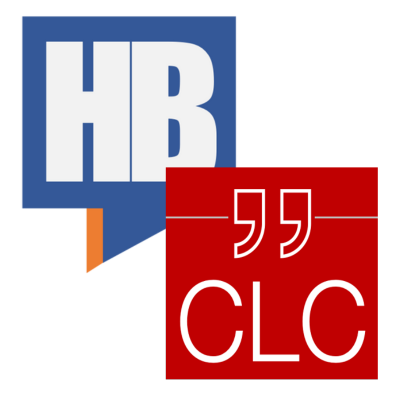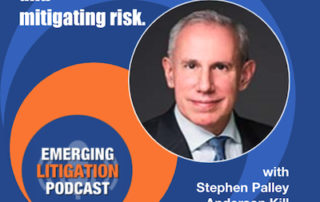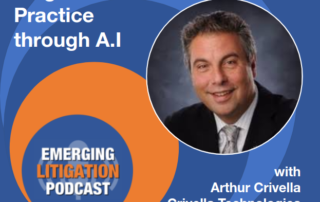
Emerging Litigation Podcast
Cryptocurrency with Stephen Palley
Cryptocurrency with Stephen Palley Joining me to discuss this paradigm-shattering model is Anderson Kill Partner Stephen D. Palley, a seasoned trial lawyer and litigator with extensive experience in complex commercial disputes like insurance recovery, securities litigation, and corporate governance. Stephen has significant hands-on software development and design experience. Based in the firm’s D.C. office, he is co-chair of its cross-disciplinary blockchain and virtual currency group. At several points during our conversation I referred to an article co-written by Stephen and his New York colleague Joshua Gold, titled Protecting Cryptocurrency Assets. Stephen earned his J.D. from Washington University, his M.A. from the University of Delaware, and his B.A. (cum laude) from Tufts University (Go Jumbos!). This podcast is the audio companion to the Journal on Emerging Issues in Litigation, a collaborative project between HB Litigation Conferences and the Fastcase legal research family, which includes Full Court Press, Law Street Media, Docket Alarm and, most recently, Judicata. If you have comments or wish to participate in one our projects, or want to tell me how insightful and informative Stephen is, please drop me a note at Editor@LitigationConferences.com. I hope you enjoy the interview, especially when Leo, my cat, knocked over my microphone and when Stephen educated me on the existence of the Weird Beard Festival and other whisker-based celebrations. --Tom Hagy Cryptocurrency assets now exceed $1.5 trillion globally. What a great innovation, as is the magic that makes these transactions possible. Of course, I’m talking about blockchain. The possibilities are endless on both counts. No central authority. No regulators. But (there’s always a but), thanks to the world’s miscreants, desperados and other baddies there is escalating potential for theft of these assets whether they are held in Bitcoin or other forms of digital currency. What should businesses consider if they plan to invest in virtual assets? How might they mitigate risk? What security measures should they have [...]
How Artificial Intelligence is Changing Litigation and Even Preventing it with Arthur Crivella
How Artificial Intelligence is Changing Litigation and Even Preventing it with Arthur Crivella Artificial intelligence has the capability to truly revolutionize how litigators work, and also how companies can avoid litigation in the first place. It can not only do the work of hundreds of people in mere seconds but can be used to predict liabilities before they become liabilities, and outcomes when disputes arise. Joining me to discuss the incredible present-day applications of AI in law and business, as well as the potential to do much more if humans will let it, is Arthur Crivella of Crivella Technologies Limited. For decades Art has been a leader in developing and applying advanced software engineering, systems engineering and AI methodologies, and holds numerous foundation patents in the field. Art has helped create nationally recognized engineering achievements in weaponry as well as in the metals, rubber and food industries. He was principal design engineer in developing advanced weapons direction systems and wrap-around simulation systems for naval guided missiles. Crivella Tech supports corporations in managing risk and law firms in assessing liabilities. The company also supports law firms in class action and mass tort litigation. This podcast is the audio companion to the Journal on Emerging Issues in Litigation, a collaborative project between HB Litigation Conferences and the Fastcase legal research family, which includes Full Court Press, Law Street Media, Docket Alarm and, most recently, Judicata. If you have comments or wish to participate in one our projects, or want to tell me how insightful and informative Art is, please drop me a note at Editor@LitigationConferences.com. I hope you enjoy the interview, particularly my observation that you cannot hurt a robot's feelings. --Tom Hagy
The Age of Social Disparagement with Charlie Kingdollar
The Age of Social Disparagement with Charlie Kingdollar It was my pleasure to interview Charlie Kingdollar for our first episode of the Emerging Litigation Podcast. Charlie spent more than four decades with General Reinsurance, three-quarters of which as the company’s Emerging Issues Officer. One colleague described him as “one of the most prescient and gifted industry futurists I have met in my 36 year professional career within the insurance industry. Entertaining and insightful, his ability to digest and communicate complex issues, many before they are readily apparent, is both a gift and a talent.” This interview is based on his article on social disparagement coming out in the inaugural issue of the Journal on Emerging Issues in Litigation in January 2021. The Journal is a collaborative project between HB and Fastcase. If you have comments or wish to participate in one our projects, or want to tell me how awesome Charlie is, drop me a note at Editor@LitigationConferences.com. We hope you enjoy the interview. Are the risks posed by social media — which has added jet fuel to one person’s ability to smear another — adequately addressed by the insurance market?
A Shameless Plug for Our Content Services
Your content marketing is everything you’ve ever dreamed of. Right?

Critical Legal Content was founded by Tom Hagy, former Editor & Publisher of Mealey’s Litigation Reports and VP at LexisNexis, founder of HB, current litigation podcaster and editor-in-chief. CLC’s mission is to help smaller firms and service providers not only create content — blogs, articles, papers, webinars, podcasts (like the stuff on this site) — but also to get it out there. How? Via social media, this website, your website, and potential via our podcast and journal which we publish in collaboration with vLex Fastcase and Law Street Media. The goal is to attract readers and dizzy them with your brilliance.
*Inspired by actual events.
Create content like a real legal publisher.






